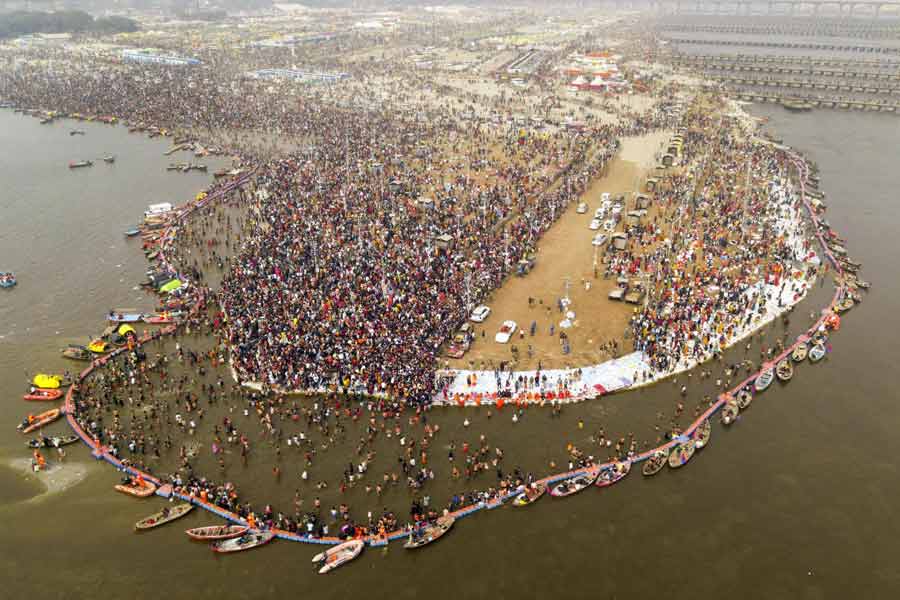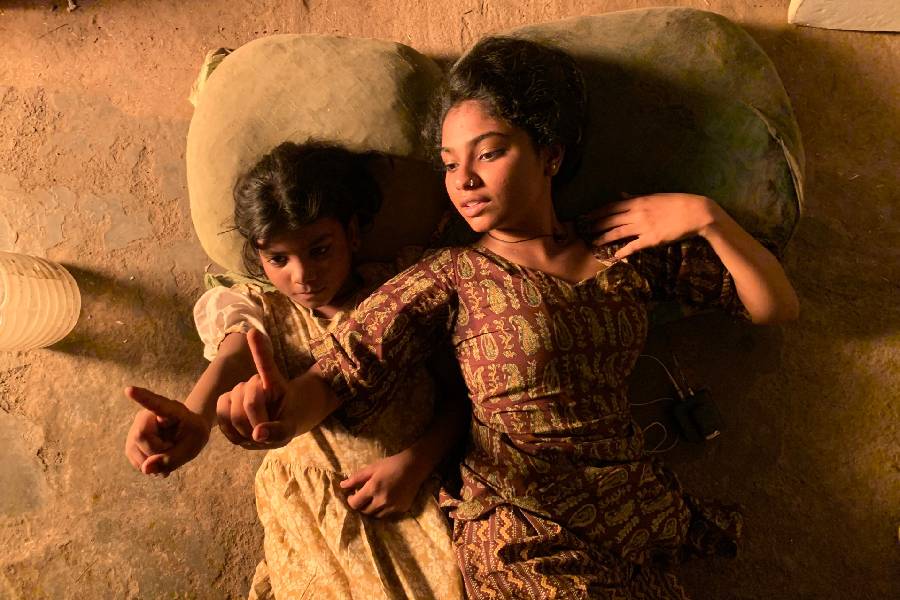Bookish bounty
Sir — TBR. No three alphabets strike as much fear in the hearts of readers as these that stand for the to-be-read pile of books. Taking up more and more space in the house, these ever-growing piles of books that have been acquired but not read yet have become something of a cultural phenomenon, causing readers immense guilt while getting new books. Yet, if there ever was an exception to the rule, too much of anything is bad, it would be books. Rather than demonise the TBR pile by turning it into a mountain that needs to be summited, it should be seen as a bountiful tree with an endless supply of fruits to pick from.
Shivani Mazumder,
Calcutta
Lost flavour
Sir — “Cyclone Dana dulls Gobindabhog flabour” (Oct 27) claimed the headline on the front page of The Telegraph. While it is unfortunate that the cyclone damaged swathes of paddy fields across East Burdwan, the flavour of Gobindabhog rice has long been dulled by the omnipresence of Basmati. The Basmati rice market is expected to be worth $533.6 billion by 2032. It has overshadowed not just Gobindabhog but several other varieties of rice. There was a time when Gobindabhog was the rice of choice for special occasions in West Bengal — be it for pulao, payesh or just steamed with a dollop of ghee. But the easy availability of Basmati rice, even though it is often an inferior variety with neither the length nor the aroma of good-quality Basmati, has edged out the likes of Gobindabhog, Radhatilak and Tulaipanji.
Aranya Sanyal,
Siliguri
Sir — There is a proverb in Hindi: ‘Ghar ki murgi dal barabar’. This is clearly true of Gobindabhog’s fate in West Bengal. It was startling to learn that the demand for Gobindabhog is high in Saudi Arabia, the United Arab Emirates, Oman, Qatar, Bahrain and Kuwait whereas Bengalis run towards Basmati rice.
Mitali Kanungo,
Calcutta
Toxic air
Sir — The Supreme Court has, on several occasions, said that the right to clean air is essential to the right to life. The court recently reiterated this while chastising the Centre and the governments of Delhi and its neighbouring states for failing to ensure a pollution-free environment in the capital and its adjoining areas. The air quality in the National Capital Region has already deteriorated to ‘very poor’ and it is not even Diwali yet. When the Aam Aadmi Party formed a government in Punjab, it was hoped that the stubble burning crisis would reduce given the party’s experience with pollution in Delhi. This has not happened.
S.C. Agrawal,
Dariba, Delhi
Sir — Stubble burning may be a seasonal phenomenon, but nudging farmers to desist from the practice should not be left to the last minute. The limits of enforcing punitive measures after the harvest should have been evident from the experience of recent years. Similarly, emergency measures are inadequate to address most other factors that drive NCR’s pollution, including vehicular and industrial pollution. Yet, each year, governments wait for air quality to worsen before taking knee-jerk measures that do not amount to much.
K.L. Rao,
Gurugram
Water woes
Sir — The latest report of the Global Commission on the Economics of Water warns that more than half of the world’s food production could be imperilled if countries do not find better ways to manage water resources. Several of the report’s conclusions have been issues of national conversation for a while now. The links between perverse subsidies and imprudent water use in agriculture, for instance, have been well-established in India. Yet, governments rarely summon the political will to nudge the farm sector to use water prudently. Similarly, industries too are rarely penalised for polluting water.
The Commission suggests a global pact to conserve water. Despite the interconnectedness of water systems, there is no global governance system for water. The United Nations has held only one water conference in the past 50 years.
Jakir Hussain,
Kanpur
Missed chance
Sir — Indians are disappointed to note that some of the country’s medal-producing disciplines like wrestling, badminton, table tennis, hockey, squash and cricket have been dropped from the Commonwealth Games slated to be held at Glasgow in 2026. While the organisers’ compulsion is understandable given the cost and the environmental imperatives of the Games, it would have been prudent to include a couple of disciplines with a significant global appeal.
Yousuf Iqbal,
Calcutta
New role
Sir — Justice Sanjiv Khanna has been appointed as the next Chief Justice of India and is set to take over on November 11 when the serving CJI, D.Y. Chandrachud, retires. Khanna will have a short tenure of 183 days but that is still a lot of time to take important decisions that can change the fate of India as a democracy. Khanna will fill rather large shoes.
Anshu Bharti,
Begusarai, Bihar











